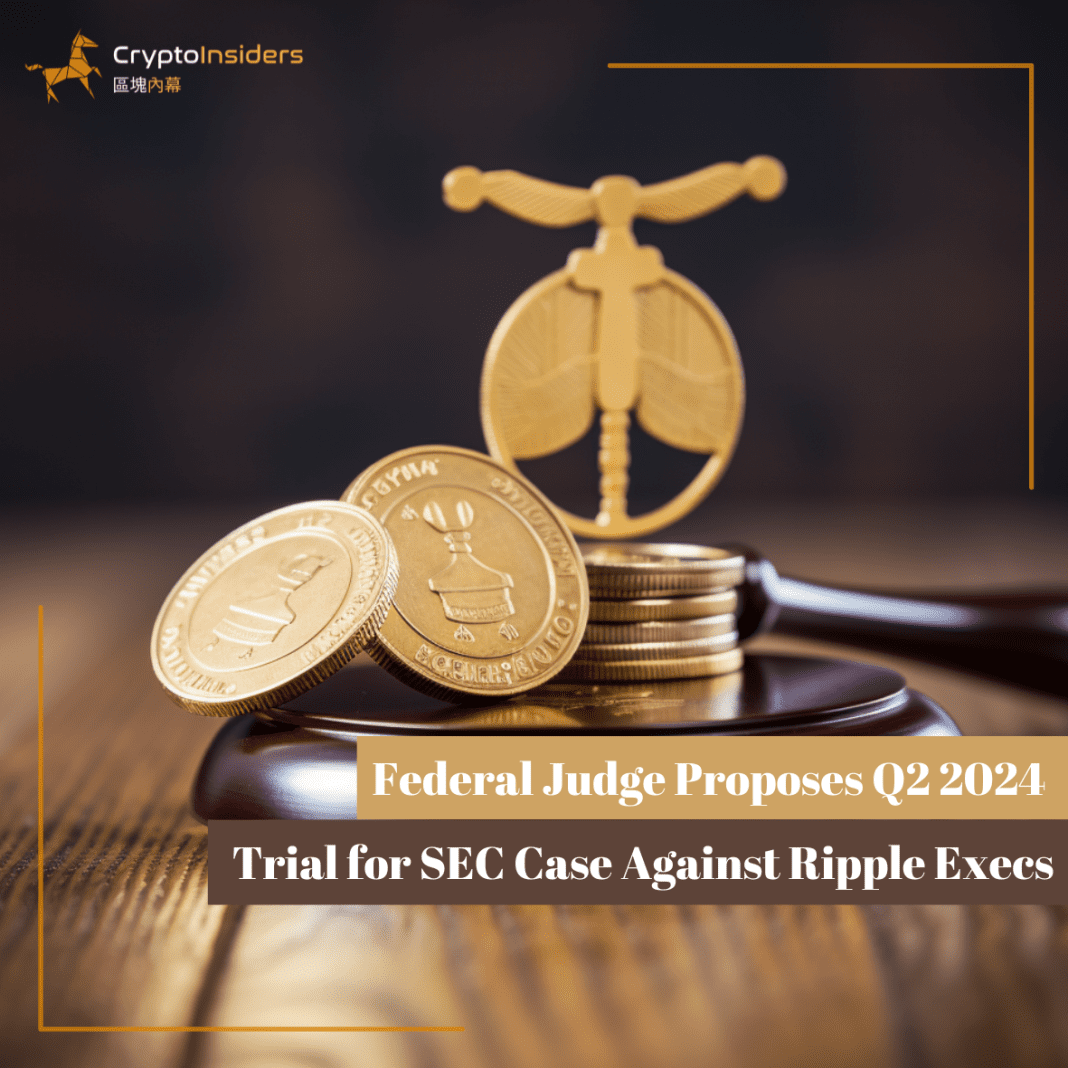Introduction
A federal judge has proposed a trial date of Q2 2024 for the Securities and Exchange Commission’s (SEC) case against Ripple executives. The case, which alleges that Ripple raised $1.3 billion through the unregistered sale of XRP, has been ongoing since December 2020.
Background
In December 2020, the SEC filed a lawsuit against Ripple Labs, Inc., CEO Brad Garlinghouse, and co-founder Chris Larsen, alleging that they raised $1.3 billion through the unregistered sale of XRP. The SEC claims that XRP is a security and that Ripple should have registered it with the agency before selling it.
Ripple has denied the allegations and has argued that XRP is not a security. The company has also accused the SEC of being biased against it and has called for more clarity on the regulation of cryptocurrencies.
Judge’s Proposal
On August 31, 2021, Judge Sarah Netburn of the Southern District of New York proposed a trial date of Q2 2024 for the case. The proposal came during a telephonic conference between the SEC and Ripple’s legal teams.
The proposed trial date is more than two years away and is subject to change. However, it gives both parties ample time to prepare their cases and gather evidence.
Implications
The proposed trial date is significant because it means that the case will drag on for several more years. This could have implications for the cryptocurrency industry as a whole, as it raises questions about the regulation of cryptocurrencies and the role of the SEC in overseeing them.
The case could also have significant implications for Ripple and XRP. If the court finds that XRP is a security, it could result in the token being delisted from exchanges and Ripple being forced to pay hefty fines.
Related:Coinbase Base Network Officially Launched: Here?s How It Can Be Used
Conclusion
The proposed trial date of Q2 2024 for the SEC’s case against Ripple executives means that the case will drag on for several more years. This could have implications for the cryptocurrency industry and Ripple and XRP. However, it also gives both parties ample time to prepare their cases and gather evidence.





